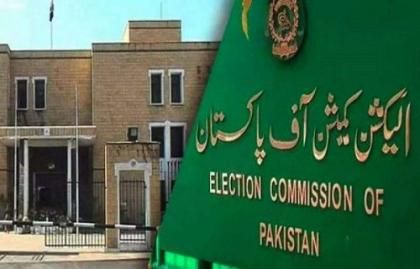The Election Commission of Pakistan (ECP) has taken a significant step by issuing production orders for the arrested representatives of local bodies. In an effort to ensure that no one is deprived of their right to vote, the ECP has called for these individuals to be brought to the polling stations on June 15, the designated voting day.
Recognizing the importance of democratic participation, the electoral watchdog emphasized the need for measures to be taken so that these detained representatives can exercise their voting rights. By granting production orders, the ECP aims to uphold the principles of fairness and inclusivity in the electoral process, ensuring that every citizen’s voice is heard.
This decision by the ECP comes amidst a backdrop of political tensions, as various parties vie for control over the mayoral slot in Karachi. The recent arrest of PTI UCs chairmen has drawn criticism from the Jamaat-e-Islami (JI) leader, Naeemur Rehman. He condemned the arrests, claiming that they were an attempt to disenfranchise the PTI representatives, and blamed the PPP for orchestrating the arrest and rigging the mayoral election.
In response to these developments, the Pakistan People’s Party (PPP) Chairman, Bilawal Bhutto, nominated Murtaza Wahab as the party’s spokesperson for the Karachi mayor position, with Salman Murad as the deputy mayor candidate. However, under the Sindh local government law, Mr. Wahab will have to win the election within six months to retain the slot if elected.
The mayoral election, scheduled for June 15, is poised to be a competitive race. While the PPP emerged with 155 seats, the JI secured 130 seats, and the PTI secured 63 seats, no political party has yet achieved a simple majority of 179 seats required for a mayoral victory. The combined seats of the JI and PTI (193 seats) indicate that the opposition parties hold a stronger position in the race. The Pakistan Democratic Movement (PDM), with 175 seats, also presents a considerable challenge.
The ECP’s issuance of production orders for arrested local bodies’ representatives highlights their commitment to ensuring a fair electoral process. By allowing these individuals to exercise their right to vote, the ECP aims to uphold democratic principles and promote inclusivity. As the mayoral election in Karachi approaches, the political landscape is filled with anticipation and competition, with multiple parties vying for power. It remains to be seen how these developments will shape the political landscape in one of Pakistan’s most influential cities.


